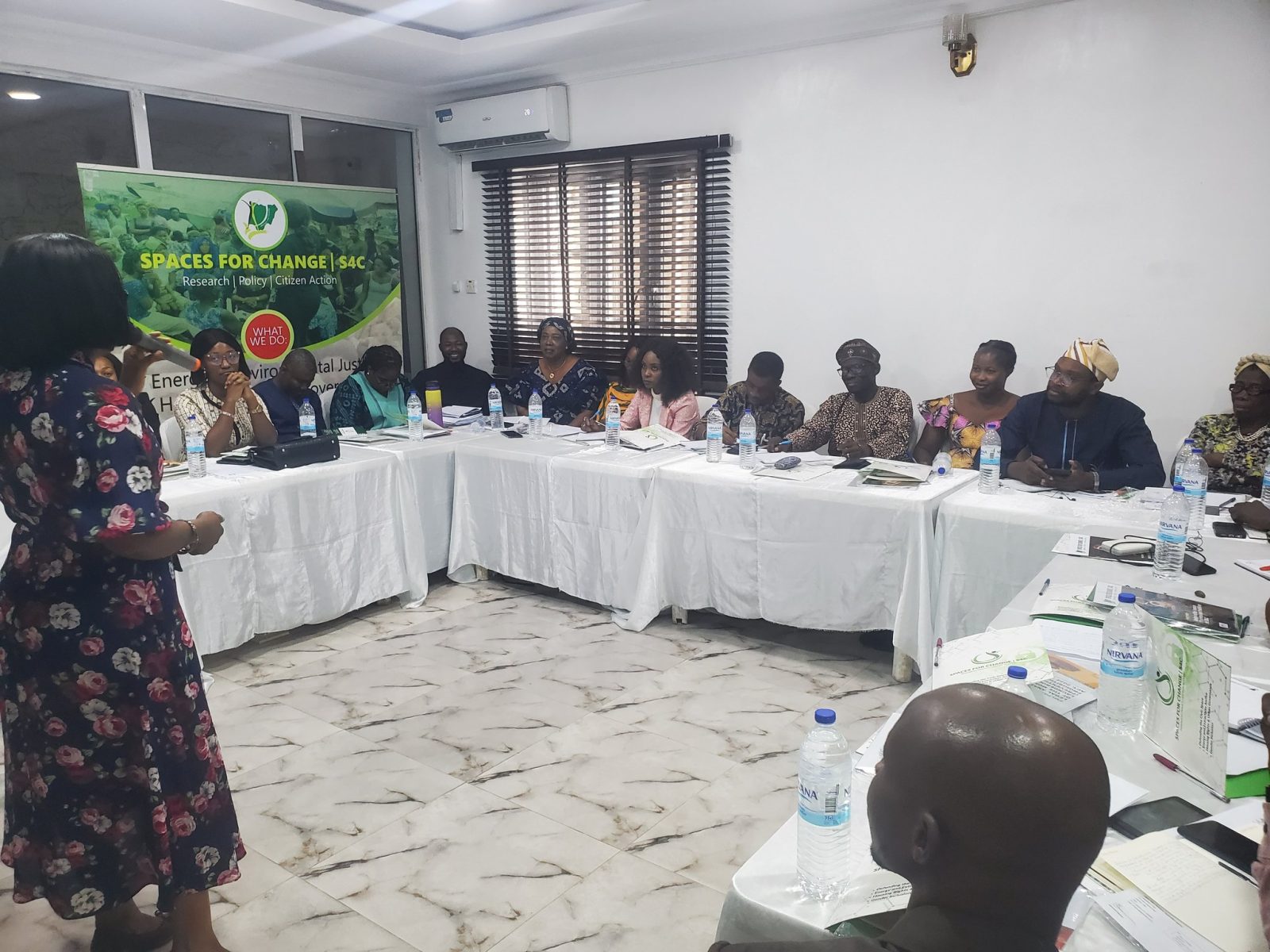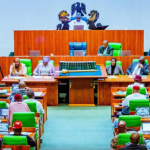Spaces for Change (S4C) has expressed worry about how counter-terrorism legislations and policies affect human rights and civic freedoms in the country.
S4C said it has commissioned an investigation into national security measures and whether they have actually expanded or narrowed the operating space for civil society in Nigeria.
Persecondnews reports that, as part of efforts to address the concerns, S4C, with the support of the Fund for Global Human Rights, convened a conference on banks and non-profit organizations in Nigeria in Lagos.
Representatives of the banking sector and other financial institutions, stewards of civil society, donors, the philanthropic community, members of academia, and the media participated in the maiden edition of the Dialogue.
The dialogue took a critical look at how the litany of restrictions and regulatory limitations, although born of legitimate concerns, has further tightened the noose around the potential for innovation in the activities of civil society.
Addressing the conference, the Executive Director, Spaces for Change (S4C), Victoria Ibezim-Ohaeri, thanked the Fund for Global Human Rights for providing the support to Spaces for Change that made the maiden edition of the Dialogue possible.
“At Spaces for Change | S4C, we have carried out extensive research work that has mainly focused on deepening our understanding of how counter-terrorism legislation and policies affect human rights and civic freedoms.
“We have also independently examined whether or not national security measures expand or narrow the operating space for civil society in Nigeria.
“In doing this, we have particularly interrogated national security policies, frameworks, and mechanisms framed around the objectives of anti-money laundering (AML) and countering financing of terrorism (CFT).
“S4C’s research studies have also gauged the extent to which national assessments of terrorist financing risks in the non-profit sector satisfy the requirements of international financial regulations such as the Financial Action Task Force’s (FATF’s) Recommendation 8.
“Some of our studies have also established how well-intentioned international norms built on the rhetoric of countering terrorism and defending national security can sometimes generate unintended consequences in national contexts,’’ Persecondnews quotes Ibezim-Ohaeri as saying.
The Executive Director’s address is titled, “Improving the implementation of aml/cft requirements applicable to non-profit entities by banks and other financial institutions (BOFIS).’’
She added: “Welcome to what promises to be a watershed moment in our collective journey—where the worlds of banking and civil society converge, not as adversaries but as allies in progress.
“Today, we stand on the cusp of a new dawn. It is a dawn that beckons us to bridge divides, to forge understanding, and to reaffirm our shared commitment to the economic and social upliftment of our nation.
“The work of nonprofits in every corner of our society, from the conflict-torn regions of the Sahel to the vibrant communities in the eastern heartlands, from the resilient heartlands of the western commercial hubs to the bustling crossroads of the Nigerian middle belt and up to the vast arable farmlands across our northern fields—all these embody the spirit of hope and the relentless pursuit of betterment.
“Their efforts, powered by the lifeblood of financial support, have illuminated paths where once there was darkness. Yet, we must acknowledge the shadows that linger—the spectre of terrorism financing and the daunting challenges it poses to our collective security.
“Our response, guided by the principles of the Financial Action Task Force and embodied in the amended Recommendation 8, seeks not just to counter this threat but to do so with a measure of balance and discernment that honours the noble missions of our non-profit organizations.’’
Ibezim-Ohaeri noted that the Special Control Unit against Money Laundering’s terrorist financing risk assessment had charted a course towards understanding, but that the journey is far from complete.
“Banks and financial institutions, our partners in prosperity, find themselves at a crossroads. The path of stringent compliance has, at times, led to unintended consequences, casting a chill on the very initiatives we aim to nurture.
“In regions where the light of infrastructure is dim, where the traditional avenues of support are but a whisper, our nonprofits have been forced to navigate the shadows, exploring various channels to deliver life-saving support to those in critical need.
“A litany of restrictions and regulatory limitations, while born of legitimate concerns, further tighten the noose around the potential for innovation in areas most in need.
“But let us not dwell on obstacles. Instead, let us envision a future where collaboration between banks and civil society is not just a necessity but a cornerstone of our shared success. A future where the implementation of AML/CFT requirements is a dance of precision, not a hammer of indiscriminate force.
“Our goal is clear: to open the civic space and ensure that the vital work of non-profits is not just preserved but thrives. Today, we invite you to join us in this endeavour, to bring your expertise, your insights, and your commitment to a table where every voice is valued, where every concern is heard, and where every solution is born of collaboration.
“Let this conference be more than a meeting of minds. Let it be a beacon of hope, a testament to what we can achieve when we choose to work together, to understand each other, and to build bridges where there were once barriers. In the words of the great Martin Luther King Jr., “The time is always right to do what is right.”
“Let us do what is right for our nonprofits, for our financial institutions, and for the countless lives that depend on the essential services they provide.
“Together, we can turn the tide. Together, we can usher in an era of mutual respect, shared understanding, and collective prosperity,’’ S4C Executive Director said.
























Leave a comment